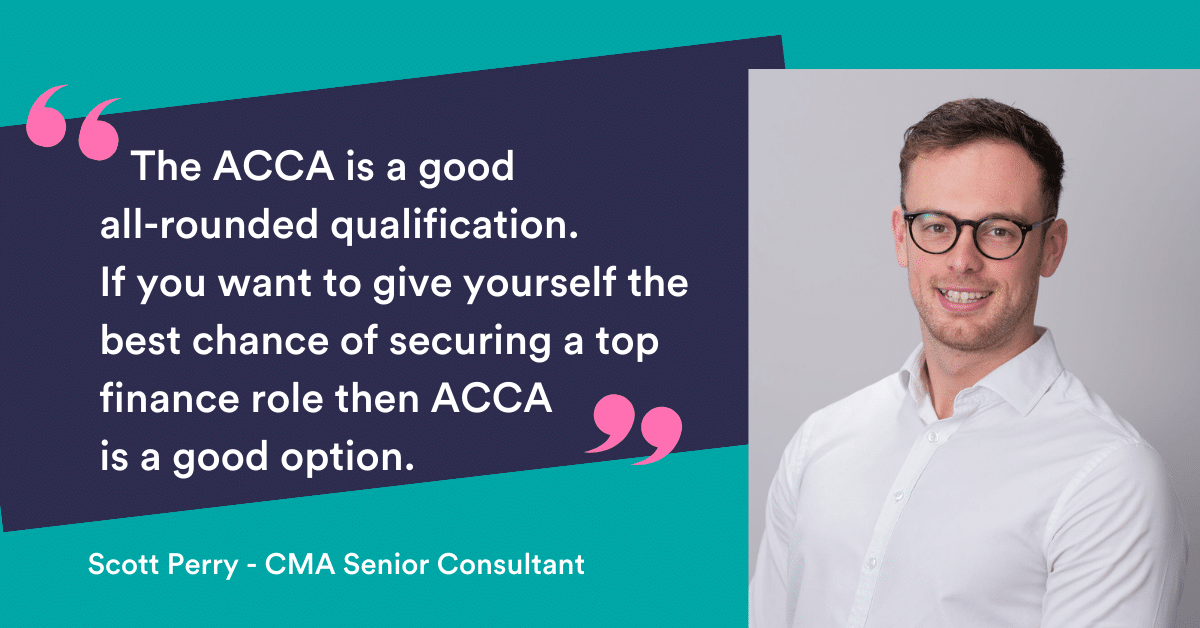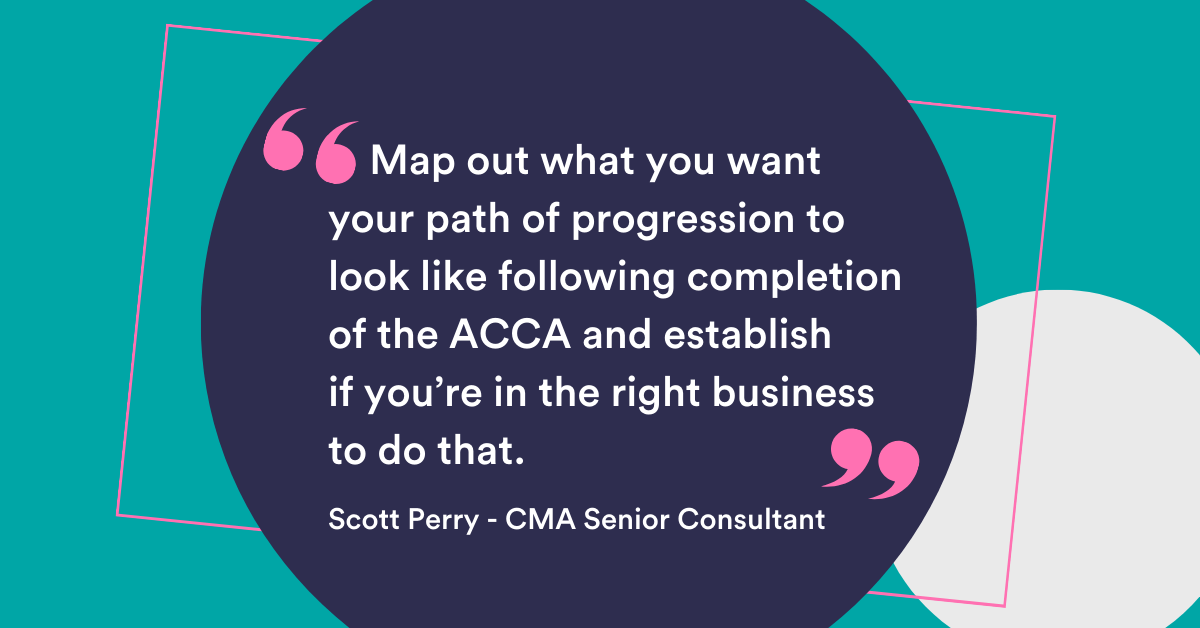ACCA – What are your career options?

In this article, we explore the benefits of studying for your ACCA, what opportunities becoming a fully qualified ACCA accountant can open up to you and offer expert tips and suggestions to help you decide if it might be the right route for you.
What is ACCA?
There are three main accounting qualifications to choose from when studying to become a qualified accountant; ACA, CIMA and ACCA and each offers different benefits.
The Association of Chartered Certified Accountants (ACCA) is a global professional qualification from one of the industry’s leading professional bodies. The qualification aims to help students ‘develop the seven core capabilities needed for accountants to be successful and sustainable business finance professionals’.
On average, it takes three to six years to become fully qualified. It’s possible for this to be funded by your employer. If you are self-funding then the costs depend on the exams taken and method of study; it will cost on average £4,000 – £5,000 for home-based learning, while on-site learning is considerably more. It’s worth bearing in mind that you’ll need to pay an annual subscription fee for every year you study, even if you don’t sit exams in that year.

ACCA – who is it for?
Gaining your ACCA qualification can be done whilst working in either practice or industry roles. Entry requirements are two A-Levels and three GCSEs (or their equivalent). These need to be in five separate subjects including English and maths.
The ACCA is quite a broad qualification as it covers both financial and management accounting and will provide you with a basis in strategic thinking, technical skills and professional values.
While all three of the above-mentioned qualifications are often held in similar regard by the majority of employers, in some circles you may find that the ACCA is favoured for technical reporting and financial accounting roles. CMA Senior Consultant Scott Perry says “The ACCA is a good all-rounded qualification, if you want to give yourself the best chance of securing a top finance role the ACCA is a good option.”
A Financial Controller candidate working in a commercial role who we spoke to said: “I chose ACCA as I felt it gave the right balance of practice and technical knowledge, and commercial opportunity. I liked that it offered both, as I always intended to work in commercial rather than practice, and it offered a good opportunity to straddle both worlds when it came to future prospects.”

What career options does the ACCA offer?
Taking the step on from your AAT to become ACCA qualified really opens up the ceiling – many top FDs are ACCA qualified so gaining this level of qualification gives you many more career opportunities. While the ACCA will open doors it’s still going to be up to you as an individual to climb those stairs!
Scott says: “Lower-level finance roles are quite black and white. After ACCA it’s not as clear cut on how you get to that next level, without the person above you making sure you’re getting involved in the right projects or sitting in on the right meetings.”
The challenge for many candidates is that there is no set route. Scott advises that the most important thing for candidates is to find a good mentor; “This will help give operational and strategic direction/mentorship to enable you to break into the next role.”
So, what sort of roles might be open to you as a Newly Qualified Accountant? The good news is the opportunities are very varied. At the NQ stage there are a huge variety of roles you could explore in accountancy and finance or practice, they might include:
- Management Accountant;
- Financial Accountant (if you are wanting something more technical);
- Finance Business Partner (if you prefer something more commercial);
- Client Manager (If you are looking for client interaction);
- Tax Specialist.

Our advice for those thinking of studying their ACCA
The first thing to do is to work out where you might like to get to and what you are trying to achieve. Scott’s advice to his candidates is to: “Map out what you want your path of progression to look like following completion of the ACCA and establish if you’re in the right business to do that.”
You could stay in a small practice for example, or go to a bigger firm where you might learn more and be able to stretch – but it needs to be the right fit for you. Speaking to your recruiter about the next steps to take is important – they are there to help you.
Consultant Amber O’Rourke specialises in Newly Qualified roles in CMA’s Accountancy and Finance division, she advises: “Speak to your recruiter and explain what you enjoy doing. They’ll be able to help you to discover your career options and better-understand the necessary experience you may need to gain to follow that route.”
It can also be helpful to sit down with your manager and talk about your aspirations and how they might be able to help you reach them.
Many of our ACCA-qualified candidates – at varying levels – agree that the ACCA is a big commitment but very worth the hard work.

